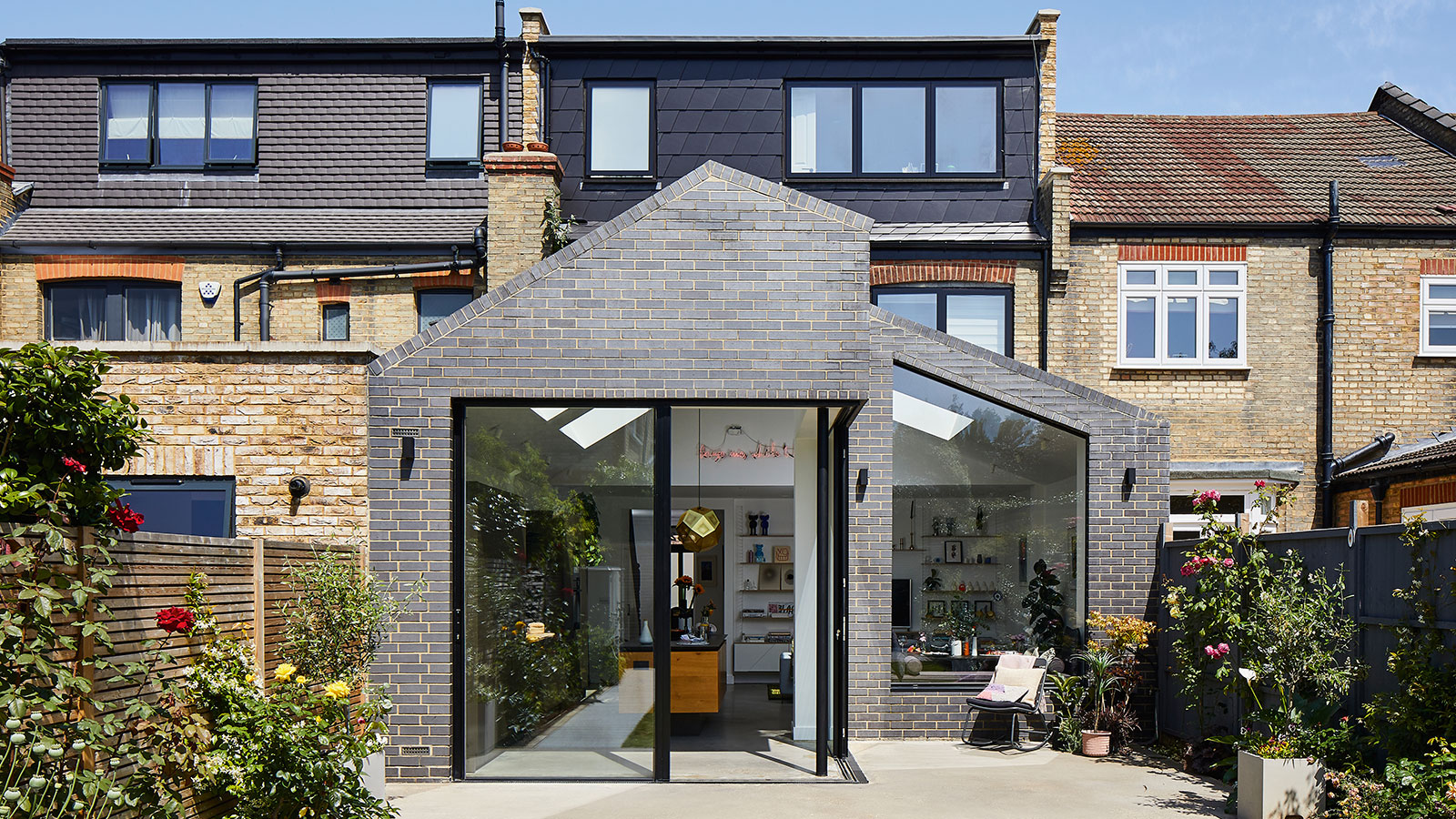Resin driveway costs — do you have the budget for a stylish new entrance?
Just how much can you expect to pay for your resin driveway costs and are there ways of keeping your spend lower when installing one?
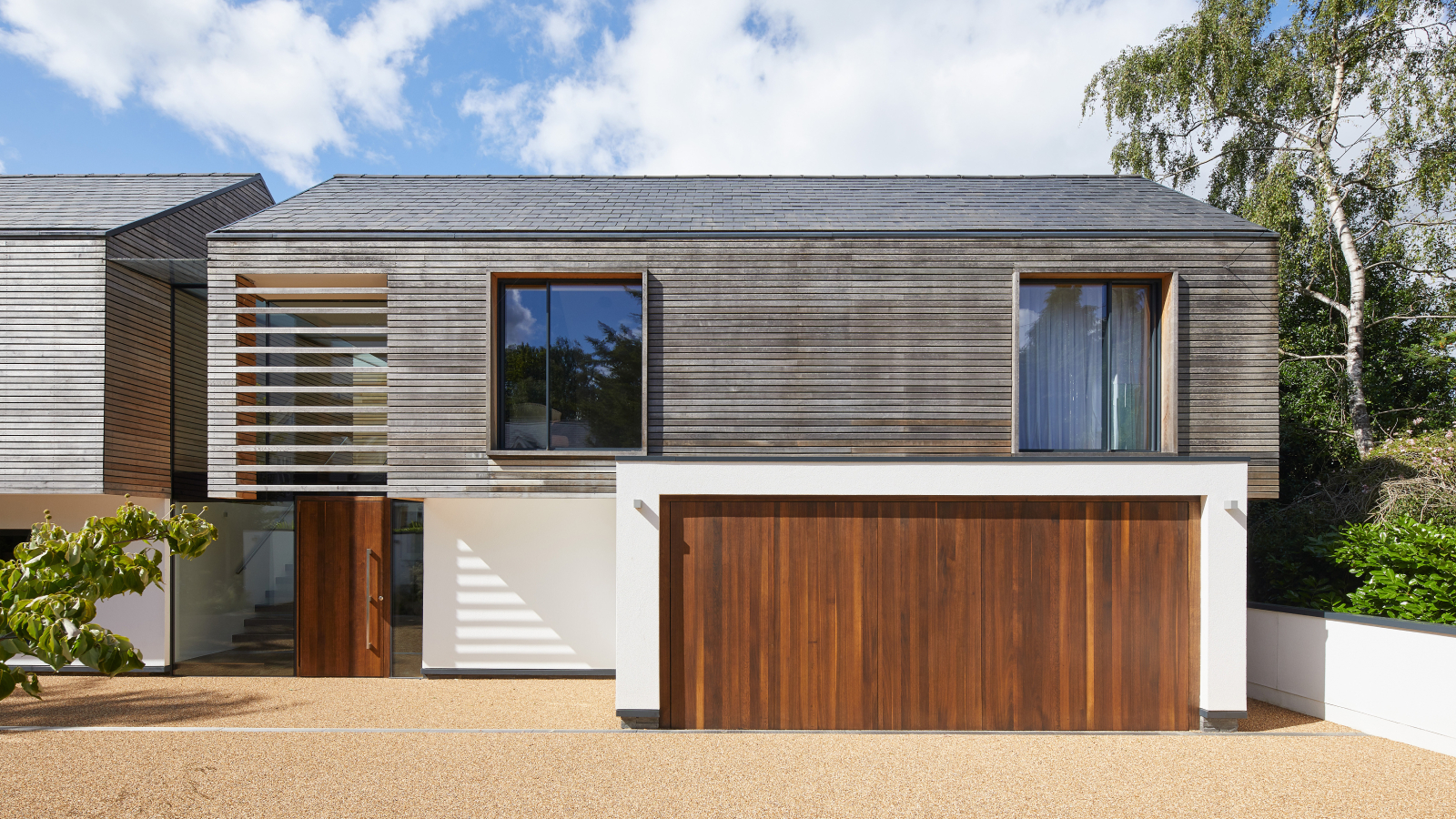
Bring your dream home to life with expert advice, how to guides and design inspiration. Sign up for our newsletter and get two free tickets to a Homebuilding & Renovating Show near you.
You are now subscribed
Your newsletter sign-up was successful
If you're looking for a low-maintenance entrance, you may be wondering whether you have the budget to include resin driveway costs in your plans. A popular driveway idea for both contemporary and traditional homes, resin driveways are quick to install, easy to care for and also meet the regulations regarding permeable surfaces.
But, all these benefits come with a price tag, meaning resin driveway costs fall at the higher end of the scale compared to some other materials.
So, what contributes to resin driveway costs and are there ways of spending less without sacrificing style or finish? We explore the options to help you decide if the cost of this type of kerb appeal is worth it.
Average resin driveway costs
Calculating your driveway costs comes down to a number of different elements, regardless of your chosen finish. In general, you will be looking at four main areas: preparation, product, installation and design.
And, while all of these factors will influence your resin driveway costs, one of the biggest differences in the price you can expect to pay, depends on the type of resin driveway finish you choose.
Two options are available to you: resin bound or resin bonded.
In the case of resin bonded systems, gravel is distributed over a layer of pre-applied resin before being left to set. Resin bound driveways consist of a surface layer of dried aggregates mixed with resin and laid to a minimum depth of 18mm onto a suitable, stable base.
Bring your dream home to life with expert advice, how to guides and design inspiration. Sign up for our newsletter and get two free tickets to a Homebuilding & Renovating Show near you.
"Resin bound is by far the most popular and premium, especially in the homeowner market, but people do get confused," says Sam Buckley, managing director of Derbyshire Specialist Aggregates, the manufacturer of Daltex.
For those after cheap driveway ideas, resin bonded finishes tend to be the cheaper of the two solutions, although they are non-permeable which is not always suitable and often leads to puddles and drainage issues. Resin bound driveways, on the other hand, are permeable, meaning water can freely disperse. They also result in fewer loose stones and an overall smoother, more uniform surface.
"Labour costs will vary by installer and region but, as a general guideline, a resin bonded overlay will cost approximately £80-£120 per m2 (excluding any base preparation)," says Sam. "However, this is just a guideline, and the real cost could be higher or lower."
"The cost for resin bound installation, including base will again vary, but is commonly £180-£250/m2," says Sam.
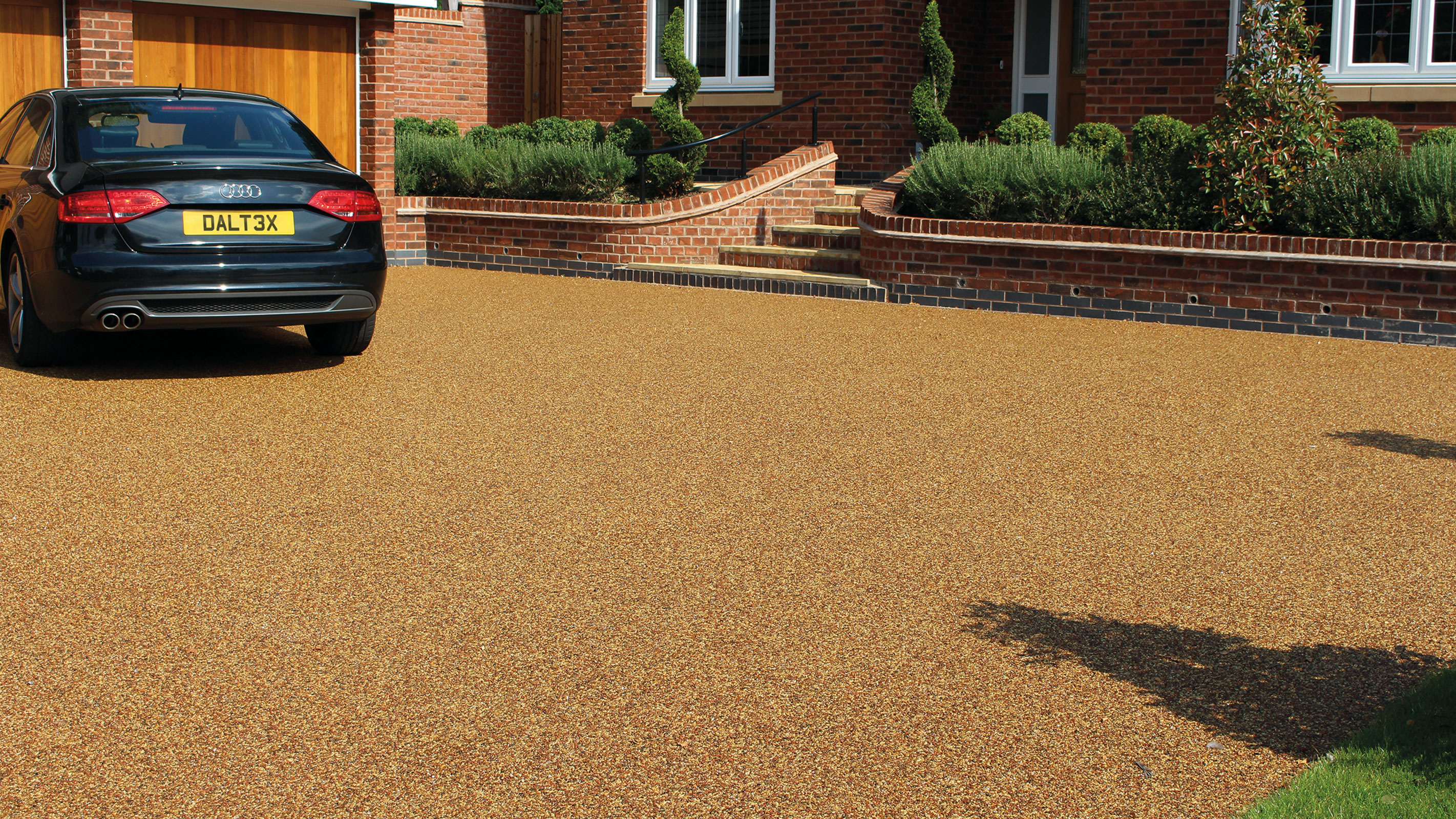

Sam Buckley is Managing Director at Derbyshire Specialist Aggregates, a company with over 35 years of experience in the trade.
Factors affecting resin driveway costs
As well as the type of installation method you choose for your driveway design, there are also other factors that will influence your final resin driveway costs.
"The cost of a resin bound driveway will also vary according to the size and shape of the area, the dried aggregates, the type of resin used and the condition of the base prior to installation," says Sam Buckley.
1. The current state of your driveway or ground
Whether installing a resin driveway as part of a self build, or updating an existing driveway, the condition of the ground you are working with will potentially impact your costs.
If your surface is old or uneven, you may need to take it up. And while this will increase your resin driveway costs upfront, it could save you money in the long run and avoid potential problems with driveway drainage.
"A damaged or uneven base will certainly require repairs, levelling and cleaning prior to resin bound being laid," confirms Sam Buckley. "In some instances the installer will recommend a completely new base is installed and in fact, many require this in order to guarantee the work," he adds.
Plus, if you're replacing the base, it could also be a good time to assess if driveway still meets your needs. Can you get in and out of your car with ease? Do you have older teenagers who may also need to park a car in the future? Taking a good look at all these elements now can potentially stop you from making driveway mistakes that are costly and time-consuming to repair.
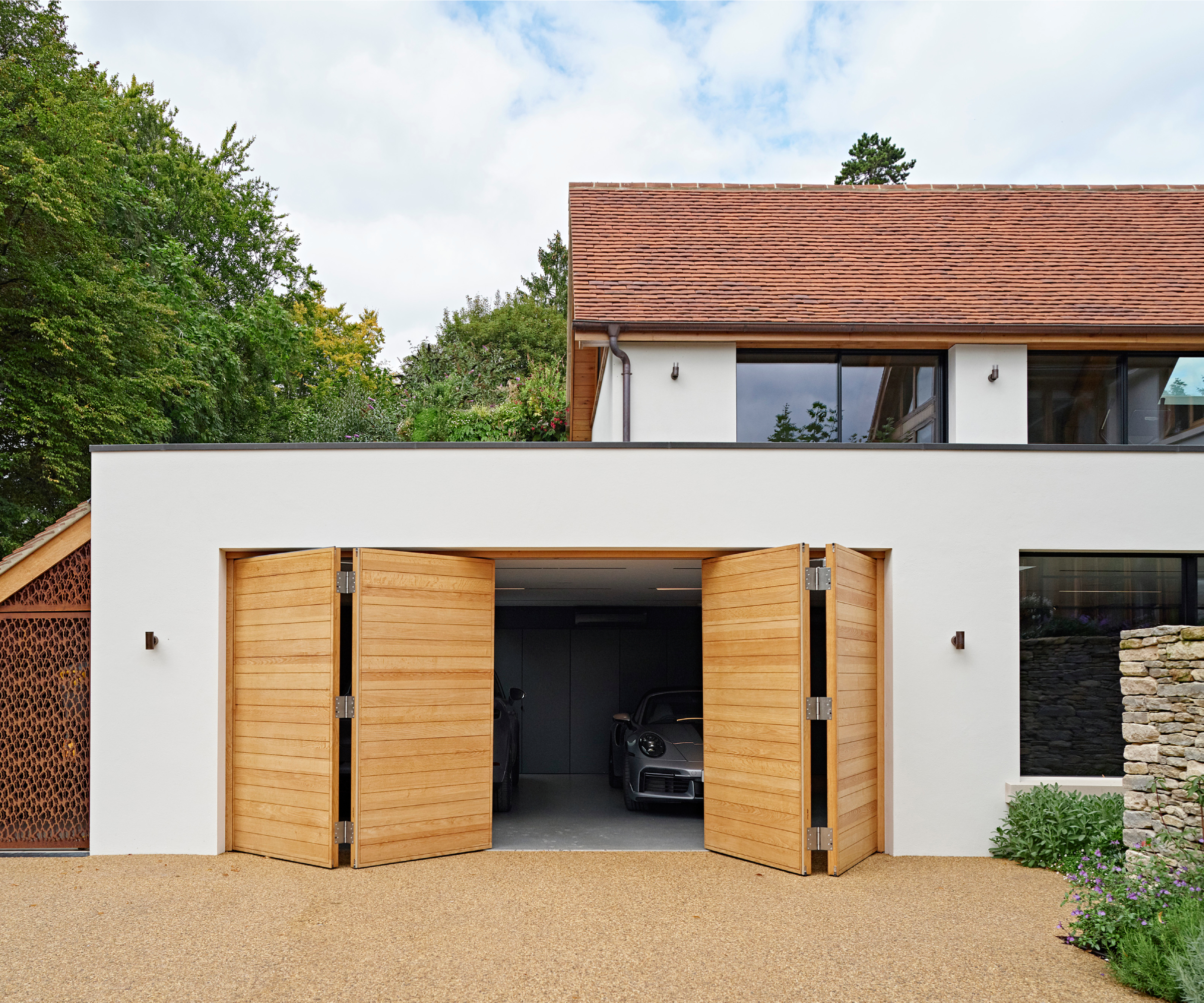
2. Type of resin used
"The resin used in the resin bound system is one of the most important contributory elements to a successful, reliable and beautiful resin bound driveway," explains Sam Buckley, "and we strongly recommend that only UV-resistant resins are used for external resin-bound surfaces."
However, although this will cost more, the end results are usually worth the initial expense.
"Non-UV resistant resin may be cheaper, but the results achieved in comparison are very different," says Sam. "Non-UV resin darkens when exposed to sunlight and this results in uneven shading. For example, the area where a car is parked, or beneath a wheelie bin or plant pot will darken and stand out from areas that are continually exposed to sunlight – and this can often happen in as little as two weeks."
3. Intricate vs simple design
You can also have resin bound driveways that feature patterns and intricate designs and use multiple colours. These can look beautiful but will obviously take longer to install, pushing up costs.
Opting for a simple-shaped driveway shape, such as a rectangle, and one colour used throughout the area will naturally be cheaper than if you have your heart set on something more complicated.
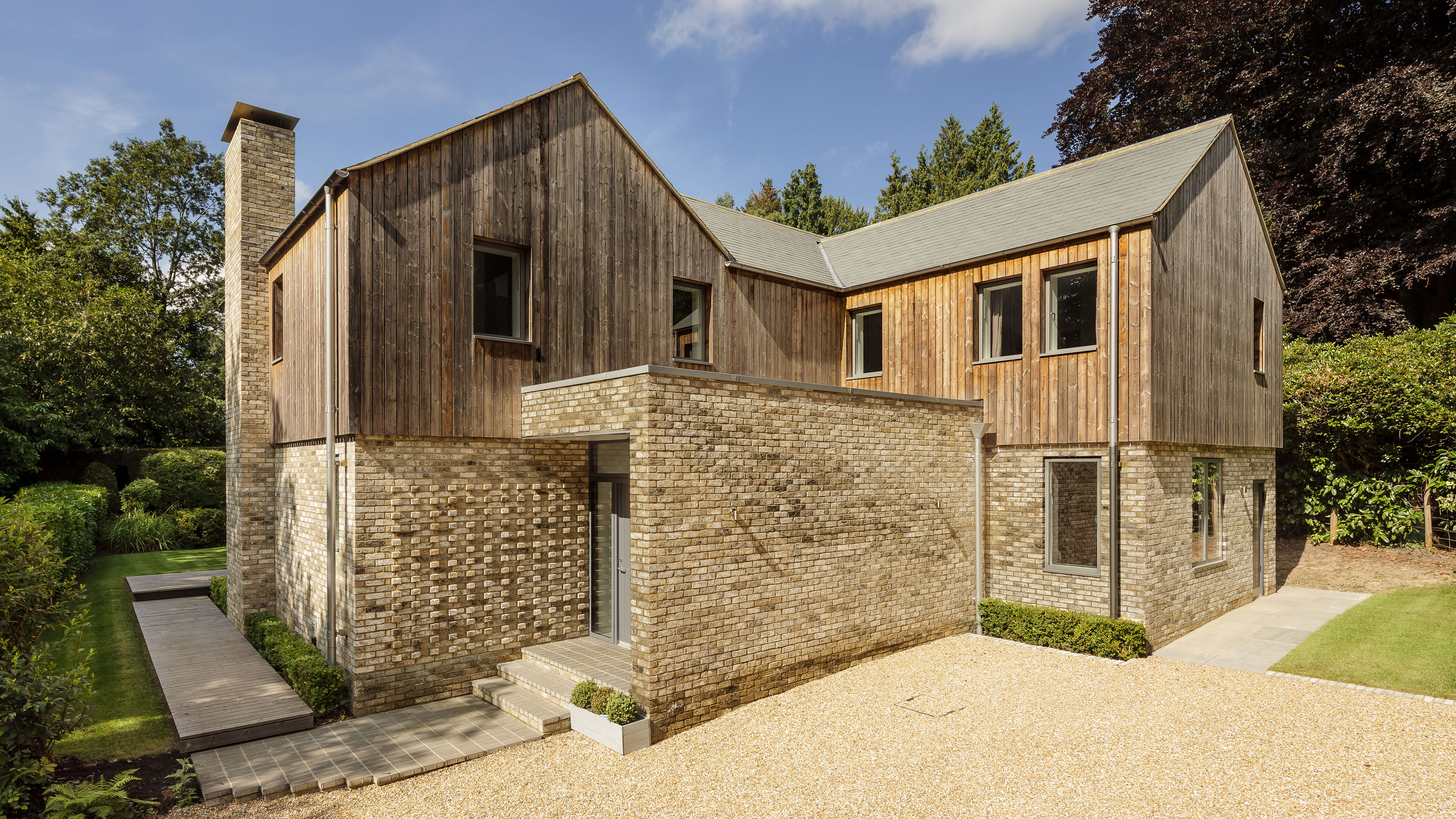
FAQs
What are the benefits of a resin driveway?
Resin driveways come with many benefits.
They are quick to install, low-maintenance and perfect for contemporary homes and traditional-style properties alike. In addition, they are a great solution for those with sloping driveways, where gravel may work its way down any slanted sections, plus they are resistant to weeds and long-lasting, providing they are installed by a qualified professional.
A resin bound driveway is also permeable, meaning it will meet driveway drainage regulations. SuDS requirements mean driveways need to allow rainwater to soak through them, thus reducing surface water runoff and flood risks.
And, as they are also resistant to changes in temperatures, they are a good way of protecting your home against climate change.
How long do resin driveways take to install?
You will no doubt be keen to know the kind of timescales you are looking at if you like the idea of a resin bound driveway in order to get an idea of how long any disruption may last.
"The time it takes to complete your driveway will vary according to its size and the amount of preparation required," advises Sam Buckley. "A team of at least three is normally required and, on average, around 70-150m2 is covered per day."
Not sure you have the budget to cover resin driveway costs?
"The most cost-effective solution would be a standard asphalt or concrete surface. These serve a purpose but won’t necessarily enhance the kerb appeal and appearance of your property as much as something ‘prettier’," says Joni Withers of Sureset.
Gravel driveway ideas are another very cost-effective solution, but do factor in the preparation and installation costs too, as well as maintenance – you'll need to familiarise yourself with how to remove weeds from gravel if you go down this route.
EDITOR’S NOTE: An earlier version of this article included a quote from a purported expert whose credentials we have not been able to verify. The quote has been removed. We regret this lapse in our verification process and have updated our internal protocols to reduce the risk of recurrence.

Sarah is Homebuilding & Renovating’s Assistant Editor and joined the team in 2024. An established homes and interiors writer, Sarah has renovated and extended a number of properties, including a listing building and renovation project that featured on Grand Designs. Although she said she would never buy a listed property again, she has recently purchased a Grade II listed apartment. As it had already been professionally renovated, she has instead set her sights on tackling some changes to improve the building’s energy efficiency, as well as adding some personal touches to the interior.
